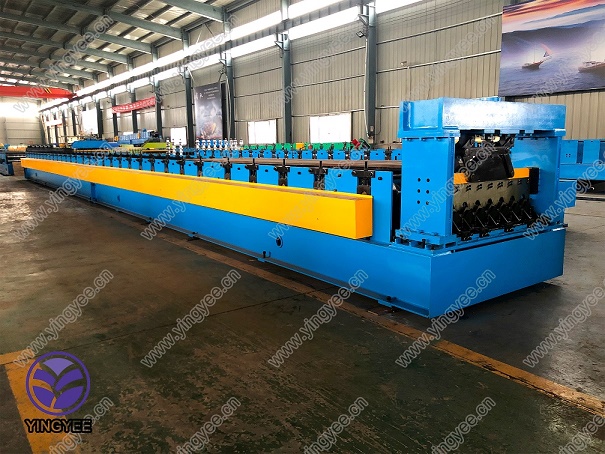
The Role of Drywall Roll Forming Machines in Modern Construction
In the ever-evolving construction industry, efficiency and precision have become paramount. As builders and architects continuously seek innovative solutions to enhance the quality and speed of construction, drywall roll forming machines have emerged as vital tools in the production of drywall components. These machines play an essential role in streamlining the construction process, reducing waste, and improving overall project timelines.
Understanding Drywall Roll Forming
Drywall roll forming refers to the process of manufacturing drywall components from flat steel coils. The rolls of steel are fed into a forming machine that uses a series of rollers to shape the steel into the necessary profiles for drywall and its framing. This method allows for intricate designs and high precision, ensuring that each component meets the required specifications for size and strength.
The primary advantage of using drywall roll forming machines is their ability to produce components quickly and efficiently. Traditional manufacturing methods often require numerous steps and extensive labor input, which can lead to increased costs and longer production times. In contrast, roll forming machines can produce long lengths of drywall components in continuous runs, significantly enhancing productivity.
Efficiency and Cost-Effectiveness
One of the main benefits of drywall roll forming machines is their efficiency
. These machines can operate at high speeds, reducing the time taken to produce drywall components significantly. This efficiency translates into lower costs for builders, as less labor is required, and production is completed in a fraction of the time compared to conventional methods.Moreover, the precision offered by roll forming technology minimizes material waste. Because the components are made to exact specifications, there is less scrap material compared to traditional manufacturing processes. This not only reduces costs but also contributes to more sustainable building practices, which are increasingly important in today's eco-conscious market.
Versatility of Applications
Drywall roll forming machines are highly versatile and can be adapted to produce a variety of drywall-related products. Whether it is standard drywall framing, specialized trims, or even partitions, these machines can handle different profiles and material thicknesses. With the ability to customize the roller dies, manufacturers can easily switch between production runs, catering to specific project needs without extensive downtime.

This adaptability is especially beneficial in large-scale construction projects where diverse drywall applications are necessary. Builders require a wide range of components, and drywall roll forming machines provide an efficient solution to meet these varying demands.
Enhancing Structural Integrity
Another critical aspect of drywall production is ensuring the structural integrity of the components. Roll forming machines create strong and durable products that are essential for the safety and stability of construction projects. The continuous forming process results in uniform thickness and strength throughout the length of the component, which is crucial for load-bearing applications.
Additionally, modern roll forming technology has advanced to incorporate features such as integrated cutting and punching capabilities. This allows for the production of complex profiles with holes or notches without the need for separate machining processes, further enhancing structural integrity and functionality.
Future Trends in Drywall Manufacturing
As technology continues to advance, the future of drywall roll forming machines looks promising. Innovations such as automation, robotics, and smart manufacturing are beginning to influence how these machines operate. Incorporating IoT (Internet of Things) technology can lead to better monitoring and predictive maintenance, reducing downtime and ensuring consistent production quality.
Furthermore, the increased demand for sustainable building materials is likely to drive further innovations in the drywall industry. Manufacturers are exploring eco-friendly materials and production processes, aligning with the global push towards sustainability in construction.
Conclusion
In conclusion, drywall roll forming machines are revolutionizing the way drywall components are produced in the construction industry. Their efficiency, cost-effectiveness, versatility, and ability to enhance structural integrity make them indispensable tools for builders and manufacturers alike. As the industry continues to evolve, these machines will play a crucial role in meeting the demands of modern construction, paving the way for faster, more affordable, and environmentally-friendly building practices.